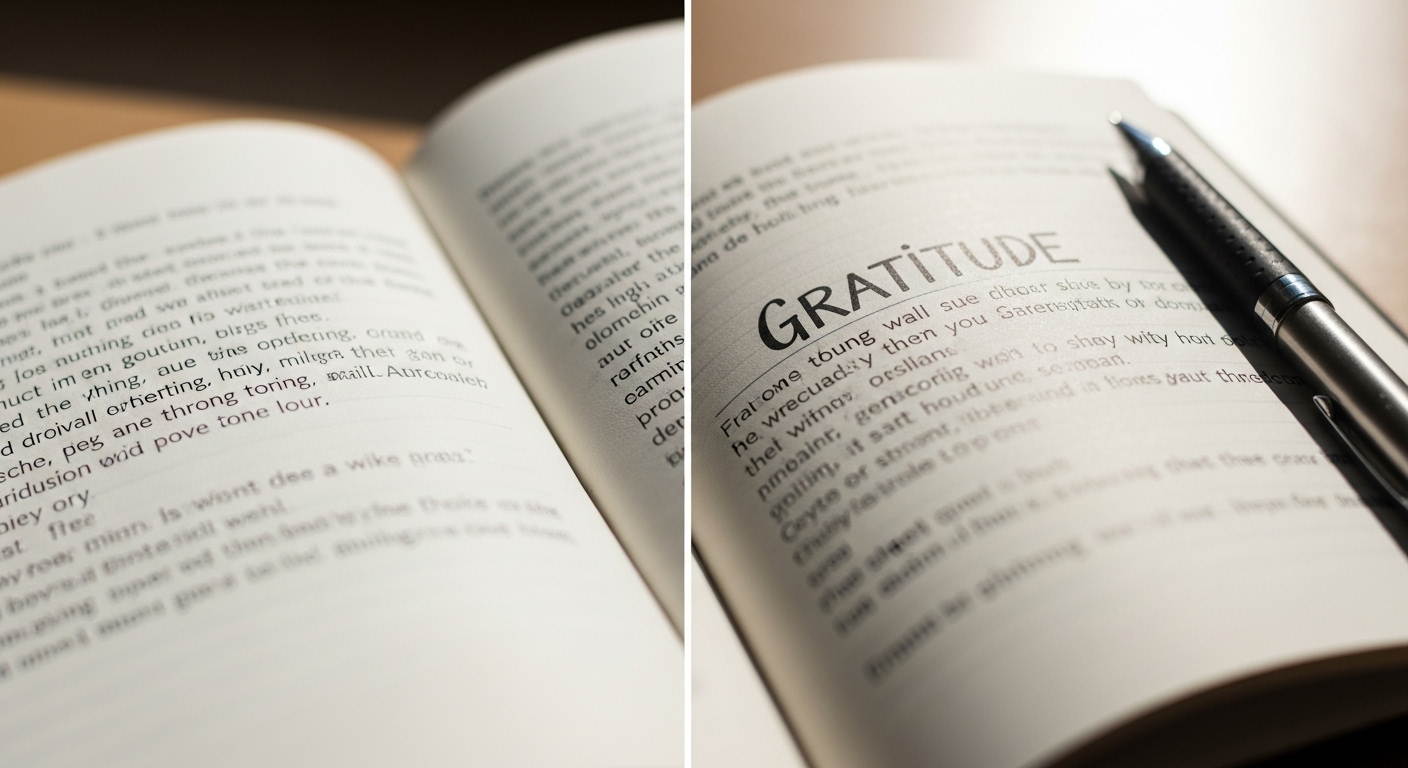Courage To Face Today: Trusting God In Uncertain Times

You wake up to headlines, notifications, and the weight of decisions—big and small—that demand your attention. The world can feel unstable, and your heart can tighten with questions: How will this end? What if I fail? Where is God in all of this? In times like these, you need more than a pep talk—you need a steady confidence that comes from knowing God is with you. This article explores how to find courage to face today by trusting God in uncertain times. You’ll learn practical steps, biblical anchors, and everyday practices to grow courage through faith, so your next steps aren’t driven by panic but by a grounded peace.
Why courage matters today
Courage isn’t the absence of fear; it’s the ability to move forward despite fear. Right now, many people experience anxiety about finances, health, relationships, and global events. Courage matters because it changes how you respond to uncertainty. When you cultivate courage through faith, you’re not just masking worry—you’re anchoring your heart in a reality that transcends circumstances. That changes your posture: you breathe differently, you make clearer decisions, and you can extend grace to yourself and others.
Fear can immobilize you, but courage through faith invites you to act with wisdom and love. It doesn’t promise instant fixes; it promises a presence that steadies you. This is important because the courage you need today is often less about dramatic heroics and more about steady choices—showing up to difficult conversations, being honest with God, taking small steps of obedience, and choosing trust even when outcomes are uncertain.
Understanding “courage through faith”
Courage through faith is a posture—your belief in who God is informs how you act. Faith doesn’t mean you won’t feel fear; it means you treat fear as a companion rather than a dictator. Think of faith like a lens: when your trust in God becomes the primary lens through which you view life, your fears are reframed. They become manageable and meaningful rather than defeating.
Scripture gives you anchors. For example, God’s promise to be with you is clear in passages like Joshua 1:9, where God tells Joshua to be strong and courageous because the Lord is with him. That same promise applies to you. When you practice courage through faith, you let the truth of God’s presence change your inner narrative and your outward choices.
Fear and uncertainty are normal
It helps to normalize the experience of fear. You’re human, and uncertainty will stir anxiety—your brain is wired to anticipate danger. But normalizing fear doesn’t mean letting it rule you. Rather, you treat fear as information. It tells you where your heart is vulnerable and where you need to pause, pray, and proceed with wisdom.
When you acknowledge fear without letting it define you, you create space for courage through faith. You can say honestly, “I’m afraid,” and still take the next right step. That vulnerability becomes a doorway to deeper trust rather than a trap that keeps you stuck.
Faith reframes fear

Faith reframes fear by shifting your focus from outcomes to God’s presence and promises. Verses like Isaiah 41:10 remind you not to fear because God upholds and strengthens you. Similarly, Psalm 23:4 reassures you that even in the darkest valley, you are not alone. Those scribbled promises in Scripture are practical—they give you words to speak when your heart races.
When you practice courage through faith, you substitute unhelpful thoughts with covenant truths. You don’t pretend fear is gone; you declare the reality of God’s presence and act in line with it.
Practical steps to cultivate courage through faith

You don’t have to wait for courage to arrive magically. You can cultivate it with intentional practices. Below are practical, spiritually grounded steps you can begin today. Each step helps you reorient your heart, mind, and actions toward trust rather than fear.
Prayer: Talk to God honestly. Prayer is less about perfect phrases and more about honest communion. When you pray, name your fears and ask for help. Scripture encourages you to bring everything to God—worry included—so that His peace can guard your heart (Philippians 4:6-7). Prayer shapes your perspective and opens you to God’s calming presence.
Scripture: Read and memorize promises that speak to fear. Keep a short list of verses—like Joshua 1:9 and Isaiah 41:10—to recall when anxiety rises. Scripture builds courage through faith by reminding you of God’s character and past faithfulness.
Community: You weren’t designed to carry everything alone. Share your struggles with trusted friends, mentors, or a faith community. Honest conversation both lightens your load and introduces other people’s prayers, wisdom, and presence. Courage often grows in the soil of a relationship.
Obedience in small things: Courage compounds. When you take small, faithful steps—apologizing when necessary, showing up for someone, choosing integrity—you build a pattern of trust. These micro-obediences create momentum for larger acts of courage.
Gratitude and remembrance: Remembering God’s past faithfulness rewires your emotional memory. Keep a journal of answered prayers and moments when you saw God act. Gratitude and remembrance are practical muscles that strengthen courage through faith.
Self-care and boundaries: Courage thrives when your body and mind are stable. Sleep, nutrition, exercise, and healthy boundaries protect your capacity to trust. Sometimes the bravest thing you can do is rest and refuse to make reactive choices born of exhaustion.
How to pray when you’re overwhelmed

Prayer in moments of overwhelm can feel like fumbling for words. The good news is that your honesty matters more than eloquence. Start simple: breathe, acknowledge God’s presence, and speak from the heart. Use Scripture as a scaffold when you’re unsure—repeat short verses that anchor you, such as Psalm 46:1-2 or Philippians 4:6-7. These verses can steady your mind when it spins.
Practical pattern for prayer during overwhelm:
- Pause and breathe: take three slow breaths to settle your nervous system.
- Name what’s true: admit your fear to God—saying “I’m scared about X” is freeing.
- Ask for help: request wisdom, peace, or a clear next step.
- Thank God for at least one thing: gratitude invites perspective.
- Listen: quiet your mind for a few moments to sense God’s presence or a gentle direction.
As you do this repeatedly, you’ll see courage through faith develop not as a one-time event but as a way of responding that becomes second nature.
Stories from the Bible that teach courage

The Bible is filled with people who faced incredible uncertainty and found courage through faith. Their stories aren’t ancient fairy tales; they’re testimonies of human hearts learning to trust God.
Joshua: Facing a nation and a daunting task, Joshua was commanded to be strong and courageous because God would be with him (Joshua 1:9). His courage came from hearing God’s promise and stepping forward.
David: David’s life was full of threats—most famously, Goliath—but his bravery came from a trust that God would fight on his behalf. Psalm 23, especially Psalm 23:4, portrays courage as walking through dark valleys with God’s rod and staff comforting you.
Daniel: In the lion’s den, Daniel’s trust in God led to deliverance and a public witness to God’s power (Daniel 6:22). His courage wasn’t theatrical; it was steady faith in daily devotion.
Jesus calming the storm: The disciples panicked during the storm, while Jesus slept. When He rebuked the wind, He also asked them why they were afraid and reminded them of His presence (Mark 4:39-40). Courage through faith often involves remembering who Jesus is in the midst of chaos.
These stories teach you that courage usually grows out of a relationship with God, not merely personal grit. Scripture invites you into the same trust those biblical figures exercised.
Real-life examples: modern courage through faith

You don’t need to look only to Scripture for inspiration—people today are practicing courage through faith in ordinary and extraordinary ways. A single mother who chooses to trust God as she navigates layoffs and long nights. A nurse who keeps going into long shifts while offering a quiet prayer between patients. Someone who chooses to forgive a painful betrayal, not because they deny hurt but because they trust God to heal and restore.
These modern examples show that courage through faith often looks like perseverance, steady acts of kindness, and small, faithful decisions made daily. When you hear these stories, know that your courage doesn’t have to make headlines to be meaningful. God honors the hidden, faithful choices that conform your heart to His.
Obstacles to courage through faith and how to face them

Even with the best intentions, obstacles will arise. You might face doubt, past trauma, chronic anxiety, or spiritual dryness. Recognizing these obstacles honestly allows you to address them without shame.
Doubt: Doubt is a question, not a rejection. Bring your doubts to God and to trusted friends. Study Scripture, but also name the hard questions. Courage through faith often includes wrestling with doubt until it leads to deeper conviction.
Wounds from the past: Past hurts can make trust feel risky. Healing often requires space, wise counsel, and time. Consider counseling or pastoral support if wounds prevent you from moving forward.
Mental health struggles: Anxiety and depression are real and may need medical or therapeutic care. Courage through faith doesn’t replace clinical help—it often complements it. Seek professional support when needed and continue spiritual practices that sustain you.
Spiritual dryness: Seasons where prayer feels flat or scripture seems distant are common. In those seasons, you practice faithfulness—show up for small disciplines, receive community, and expect seasons to change.
When obstacles arise, remember that courage through faith doesn’t eliminate challenges; it gives you a reliable way to walk through them.
When courage doesn’t look like bravery

Courage often gets pictured as dramatic heroism, but much of your courage will be quiet and mundane. It could be choosing patience with a difficult family member, keeping your word, or saying “I’m sorry” when it hurts. Small acts of faithfulness matter and accumulate into a life marked by courage through faith.
These seemingly small acts are the training ground. When you consistently choose truth, kindness, and obedience, you’re building muscle memory for bigger moments. Courage through faith in everyday life looks like integrity, consistent prayer, and choosing hope even when results aren’t immediate.
Tools and resources to help you grow

You don’t have to figure this out alone. There are excellent tools that can help you grow courage through faith without adding pressure. Here are some reliable categories and examples:
Devotional apps and reading plans: Short daily readings help you stay connected without needing an hour each day. Apps often include reminders and community features.
Bible study resources: Use reputable sites like Bible Gateway for reading plans and different translations, or study tools that help you dig deeper into context.
Counseling and support groups: Licensed counselors, faith-based therapists, and support groups provide safe spaces to address trauma and anxiety.
Journals and prayer lists: Writing out fears, prayers, and gratitude can externalize worries and make patterns visible. A prayer list of needs, paired with notes on answers, encourages remembrance.
Trusted mentors and church community: A small group or mentor offers accountability, encouragement, and prayer.
Each of these resources supports courage through faith by giving you practical help and spiritual companionship. Choose a couple that fit your rhythm and start there.
Walking forward: a 7-day practice to build courage through faith

You can start building courage through faith with a focused week of practices. These are small, manageable steps that create momentum.
Day 1 — Anchor in Scripture: Choose two verses to memorize or write on index cards. Suggested verses: Joshua 1:9 and Isaiah 41:10. Repeat them when fear arises.
Day 2 — Honest Prayer: Spend five to ten minutes naming your fears aloud to God. Ask for peace and one clear next step.
Day 3 — Small Obedience: Do one thing you’ve been delaying because of fear—make that difficult phone call, write that email, or set a boundary.
Day 4 — Remember and Record: List three moments when you saw God provide. Write them down and thank God for each.
Day 5 — Community Check-In: Share your journey with a trusted friend and ask them to pray for you. Vulnerability invites support.
Day 6 — Rest and Reflection: Permit yourself to rest. Rest is not passive failure; it’s wise stewardship of your body and mind.
Day 7 — Celebrate and Plan: Celebrate the steps you took, no matter how small. Plan one courageous step for the coming week and commit it to prayer.
This week isn’t about perfection. It’s about forming habits that increase your capacity to live out courage through faith on a day-to-day basis.
Final encouragement: you are not alone
You’re not alone in your uncertainty, and you don’t have to manufacture bravery on your own. Courage through faith is cultivated by remembering who God is, practicing small acts of trust, and relying on community and Scripture when fear rises. God’s presence is not a guarantee of an easy life, but it is a promise that you won’t walk through difficulty abandoned.
When you choose courage through faith, you resist the tyranny of worry. You don’t deny risk or pain; you anchor them to the truth that God is with you, working in ways you may not yet see. Let that reality shape your next steps. Take one small act of obedience today—whatever it is—and trust that God will meet you there.
If this article helped you find a little more courage to face today, please clap, leave a comment to share your thoughts or experiences, and subscribe to my Medium newsletter for updates and more encouragement. Your voice helps others find courage through faith, too.

Explore More
For further reading and encouragement, check out these posts:
👉 7 Bible Verses About Faith in Hard Times
👉 Job’s Faith: What We Can Learn From His Trials
👉 How To Trust God When Everything Falls Apart
👉 Why God Allows Suffering – A Biblical Perspective
👉 Faith Over Fear: How To Stand Strong In Uncertain Seasons
👉 How To Encourage Someone Struggling With Their Faith
👉 5 Prayers for Strength When You’re Feeling Weak

📘 Jesus and the Woman Caught in Adultery – Grace and Mercy Over Judgement
A powerful retelling of John 8:1-11. This book brings to life the depth of forgiveness, mercy, and God’s unwavering love.
👉 Check it now on Amazon 🛒💥
🔥 “Every great message deserves a home online.” 🌍💬🏡
Don’t let your calling stay hidden. Start a Christian blog or website using Hostinger — with 99.9% uptime, a free domain, and SSL, your voice can shine for God’s glory anytime, anywhere.
💥 Begin today. 🛒 Try it RISK-FREE! ✅
✝️ “Your body is God’s temple — care for it with purpose.” 💪💖🏛️
Renew your energy and restore balance naturally. Mitolyn helps support a healthy metabolism, giving you the vitality to live out God’s calling with strength and confidence.
🔥 Unlock Your Metabolic Power! ⚡Burn More Calories & Feel Great With Mitolyn. 💪
👉 Start Today. 🚀 Check Price Now. 🛒💰
💰 As a ClickBank & Amazon Affiliate, I earn from qualifying purchases.
📖 Acknowledgment: All Bible verses referenced in this article were accessed via Bible Gateway (or Bible Hub).
🚀 Want to explore more? 👉 Dive into our new post on Why Jesus? and experience the 🔥 life-changing truth of the Gospel!




